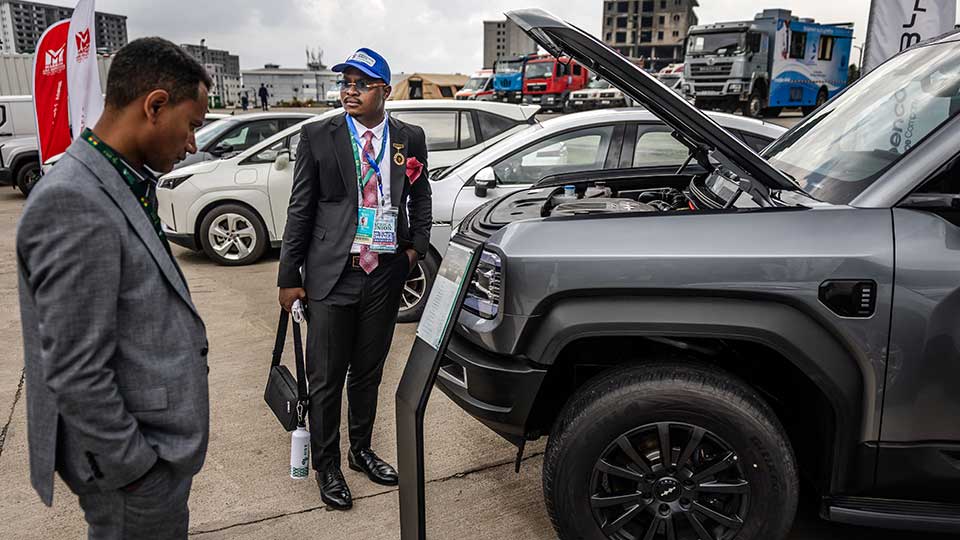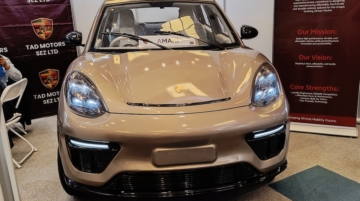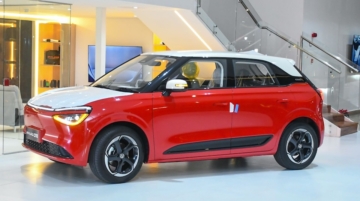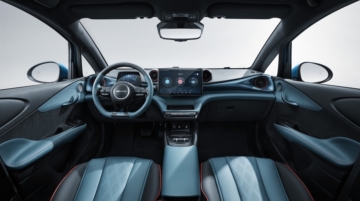
This is a free preview of the upcoming Africa EVs Weekly Digest, part of the new CGSP Intelligence service launching in Summer 2025.
Innovations in Africa’s electric vehicle (EV) market continue with partnerships that are as unique as the solutions they are meant to offer. These include charging stations in churches, as companies seek to bring e-mobility services closer to the people and to make the energy switch as smooth as possible.
The shift to e-mobility offers African countries the opportunity to retain more tax revenue to build their economies, but very few are willing to sacrifice oil for electrons. In countries like Ethiopia, though, those who have bought electric vehicles are already enjoying the benefits.
Meanwhile, a European anti-EV lobbying campaign could have far-reaching effects in African countries that rely on second-hand vehicles from the EU. As the 2035 deadline to end the manufacturing of internal combustion engines (ICE) approaches, the outcome could directly affect Africa’s second-hand vehicle market.
This week on EVs in Africa:
Spiro to Build Solar Swapping Stations at Catholic Churches
Africa’s largest electric motorcycle company, Spiro, is partnering with the Catholic church to build solar-powered battery swapping stations at church properties. With 1,170 parishes and 5,830 mission stations across Kenya, the church’s extensive reach is expected to accelerate Spiro’s battery-swapping network rollout, providing access to thousands of riders nationwide.
Why This Matters: The Catholic church is the largest in Kenya, and the collaboration could use the church’s strong presence across the continent to extend access to charging infrastructure to millions of Africans.
Ethiopians Dream of an Electric Car Future
Last year, Ethiopia banned the import of petrol and diesel vehicles, aiming to reduce the country’s reliance on increasingly expensive fossil fuels.
While many welcomed the shift, the vehicles remain hugely expensive. But those who have made the switch experience immediate payoffs. The fuel cost savings are part of what a green mobility future looks like for a country like Ethiopia. African countries spend billions of dollars annually on imported fuel, straining their economies due to foreign exchange rates.
Why This Matters: These currency-related losses can only be addressed if the shift to electric mobility is widely adopted. Those African countries that can look beyond the short-term benefits of an oil economy will likely reap the full benefits of e-mobility.
South Africa Courts Chinese Carmakers For Local Manufacturing
The South African government is engaging Chinese companies to manufacture their hybrid and electric vehicles in the African nation. Pretoria plans to raise import taxes to deter cheap imports which could price out locally manufactured cars.
South Africa is a key export market for Beijing’s auto industry.
Why This Matters: South Africa has a well-established auto industry that faces U.S. trade pressure. Attracting Chinese manufacturers could keep the sector afloat.
European Carmakers Lobby to Extend ICE Vehicle Manufacturing Flops
European carmakers are lobbying to slow down the EV transition, saying the shift is happening too fast, dampening the European car market.
A Friday meeting with the EU Commission President was inconclusive; an extension to the ICE manufacturing 2035 deadline would have far-reaching effects, especially in African countries.
Why This Matters: Second-hand vehicles from Europe are popular in several African countries, and extended manufacturing means a continuous supply for this second-hand market. If the cutoff date remains, Africa’s shift to e-mobility will likely accelerate.
In Context
The latest developments in Africa’s EV market highlight both the promise and the challenges of the continent’s green mobility transition. From innovative partnerships like Spiro’s plan to build solar-powered battery swapping stations at Catholic churches in Kenya, to Ethiopia’s bold ban on petrol and diesel vehicle imports, African nations are experimenting with strategies to cut reliance on costly fuel imports and strengthen their economies.
At the same time, South Africa is courting Chinese automakers to set up local EV manufacturing, while Europe’s internal debates over extending combustion engine production could reshape Africa’s second-hand car market.
The takeaway: Africa’s electric mobility transition is being shaped by both local innovation and global policy shifts. From courting Chinese automakers to experimenting with ways to cut fuel costs, the continent’s EV future will be determined as much by external decisions as by local initiatives.










